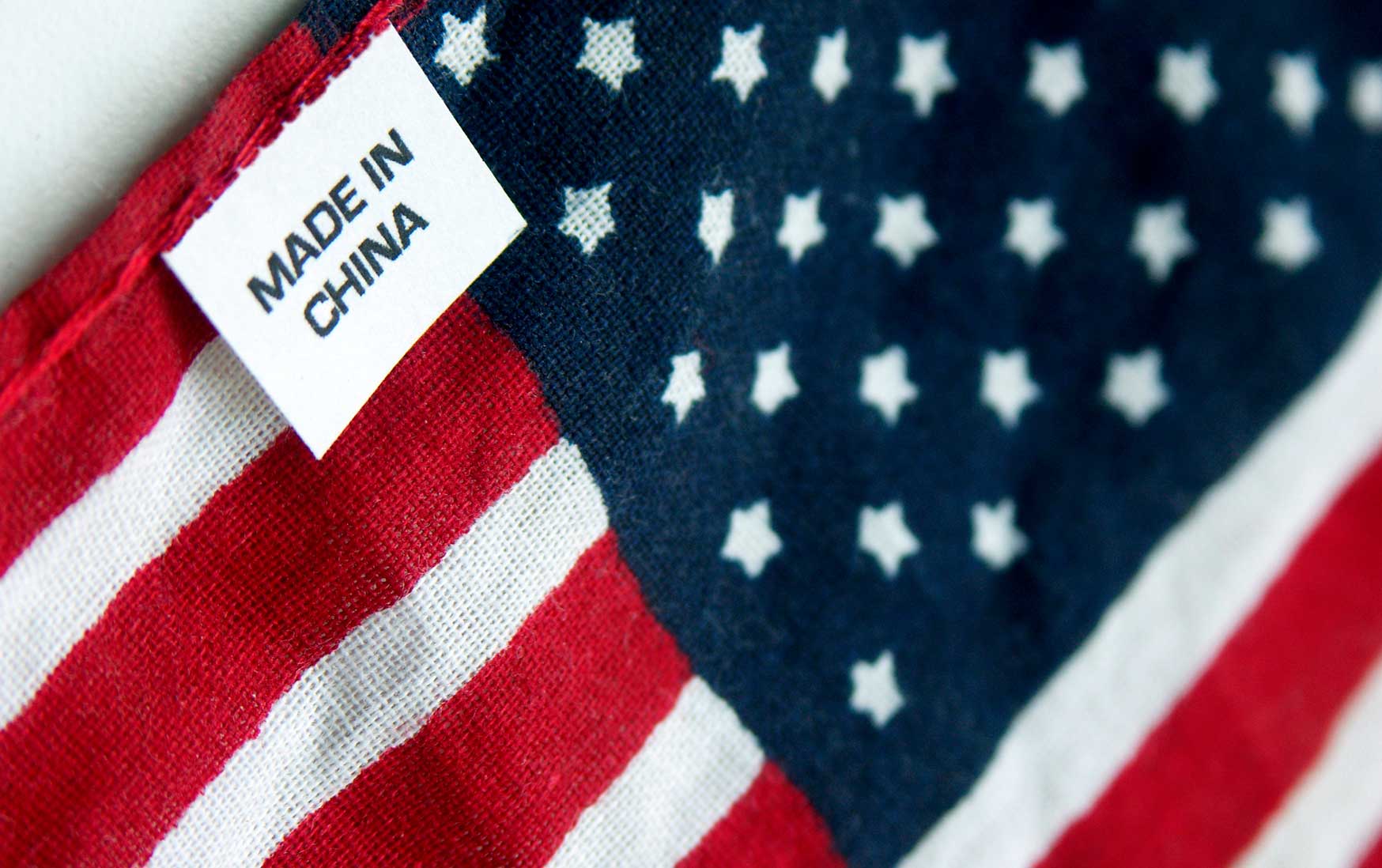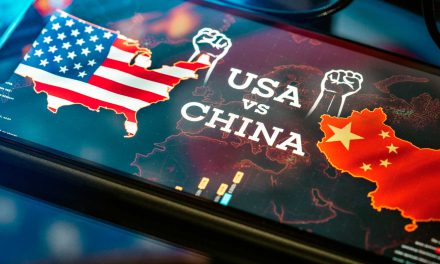Digital technologies are increasingly playing a significant role for governments, non-governmental organisations and other civil society institutions that rely on mobile communications. For Africa, in particular, the greater reliance on mobile technologies is evidenced by Brookings Institution findings that show that mobile technologies contribute $144 billion towards the continent’s economy.
Over the past decade, US and Chinese digital competition has played out on the continent. Both the US and China are struggling to take control of shaping Africa’s technology infrastructure and digital future as this is key to how the next generation of Africans will consume, do business and interact with the world.
The country that succeeds in achieving technological superiority will enable the offsetting of capabilities each side looks for in the military sphere. The information Africans consume could vary depending on the digital infrastructure that supports these interactions. This makes the conflict between China and US big tech of interest to the continent; Africa is at the centre of this technological war and is living through a change of thinking that concerns how technology is financed, developed, and deployed. Africa, therefore, cannot afford to take a position of neutrality as the competition between China and the US becomes increasingly difficult to avoid.

Both the US and China have recognised that Africa is a young and fast-growing market in which to unleash the developmental benefits of a second internet revolution, supplying the backbone for innovative e-health, edutech, fintech, and regtech (regulatory technology) companies to grow.
The digital competition between the US and China in Africa is concentrated in the following areas: telecommunication companies and internet service providers, mobile handsets, data networks, operating systems and apps, mobile money, content platforms and web browsers, undersea cables, and satellites. According to the Atlantic Council, Chinese tech company Huawei has built more than 50% of Africa’s 3G network and 70% of its 4G network. This is also apparent from the China Global Investment Tracker, which has recorded a total of $7.19 billion investment on the African continent between 2005 and 2020. According to the Digital Sprinters Report, US tech company Google invested $1 billion in Africa’s internet economy over five years.
US mobile company Africell has more than two million users in Angola. Apple is considered the supplier of high-quality handsets, while Chinese company, Transsion, is considered the leading supplier of handsets in Africa. The US and China have different, competing operating systems; the former uses Google, while the latter uses Harmony as its operating system for Huawei.
US and China tech competition also extends to web browsers. For instance, the US has Google maps, while China plans to introduce Baidu maps, which will be operated through the BeiDou satellite navigation system. Content platforms are also seeing mixed ownership; TikTok is owned by a Chinese company while Twitter is US owned.
For China, Africa has proven attractive for its tech infrastructure, while for the US the continent is seen as an opportunity to work with flagship US tech companies to accelerate and scale critical digital infrastructure to the benefit of American and Africans alike. While US tech investment comes through American companies, Chinese tech investment in Africa is often intertwined with government backing and support. This has resulted in policy choices on how to implement the digital agenda in Africa, shaped by the geopolitical tech war between China and the US. The governance models and value systems of the US and China differ, putting the two countries at odds over democracy and human rights in Africa, among other issues.
Digital sovereignty is focused on who builds the infrastructure and the hardware, and who controls the data in artificial intelligence and the internet of things. Africans, therefore, must make choices that consider their interests by striking a balance between the affordability of technology, quality standards and the internet governance rules that protect their citizens and economy.

An artist impression of the Beijing skyline that depicts the smart city network layout of the capital. Photo: Getty Images
To date, the narrative around US and China tech competition has focused on the role of these two governments and less on the agency of Africans and the role that African consumers play in determining the future of US and Chinese technology on the continent. There are indications that the Biden administration will support aspects of the Trump policy towards China, and what this means for Africa is that the continent is likely to continue to feel the heat between these two.
Moving forward, it is important to seek cooperation that advances African interests. The main argument is that the US and China need to advance technology in Africa through value-based foreign policy, aligning themselves with the continent’s arc towards innovation, technology, and youth-driven global culture.
One of the approaches Africa should take is to adopt a sectoral approach under the banner of the American initiative Prosper Africa, which connects US and African businesses with new buyers, suppliers, and investment opportunities, focusing on technology and digital infrastructure, in the hope of mobilising resources and improving technological infrastructure. The trade and investments programmes at USAID can also be considered as platforms for making policies that speak directly to Africa. The continent also needs to renegotiate with the US to have direct-to-consumer satellite solutions that will support American tech firms already investing in African markets.
Now that internet data is becoming central to economic and industrial development, it is likely that the race to influence standards and internet rules will become central to international diplomacy. The continent, therefore, needs a concrete digital strategy that includes the African voice in the debate about US and China digital competition. In 2019 Google announced the subsea cable, Equiano, running from South Africa to Portugal, via Nigeria; the biggest lesson Africa can learn from this is to be included in co-owning the project.

Blockchain is a shared, immutable ledger that facilitates the process of recording transactions and tracking assets in a business network. Photo: Getty Images
China’s Africa policy is committed to a well-developed and centred Forum on China Africa Cooperation (FOCAC). China has promoted the Digital Silk Road initiative (DSR), under the BRI, as a solution to Africa’s data needs. The DSR initiative encompasses the technology dimensions of the Belt and Road Initiative (BRI) such as cross-border transactions, smart cities, telemedicine, internet finance, artificial intelligence, quantum computing and blockchain. China’s proposed global data security initiative is meant to set the rules at a multilateral level and should be looked at from the point of view where the policy accounts for Africa’s conditions and aspirations. The US has interests in the African continent that engender competition with China. This was demonstrated by the recent launch of America’s Development Finance Corporation and various China-focused legislative initiatives in the US Congress.
Africa’s position should include a strong representation from the Africa Continental Free Trade Area (AfCFTA), as it is driven by emerging technologies. The AfCFTA should be included as a flagship initiative of the Sustainable Development Goals (SDGs) and the Science, Technology, and Innovation Strategy for Africa 2024 (STISA-2024) by improving infrastructural development and well-aligned policy frameworks to enhance Africa’s industrialisation aspirations. Moreover, Africa has an opportunity to use the US Congress’s 2000 African Growth and Opportunity Act in engaging with both America and China to promote economic growth through good governance and free markets for technology.
In conclusion, it is clear that the geo-technological challenges between the US and China have a major impact on the African continent in terms of the economy, national security, and value-based systems. The continent is in urgent need of a robust set of technology and cyber security policies to empower African youth with the necessary skills to advance technology – and to engage in multilateral digital trade initiatives that cater for Africa’s needs.
[activecampaign form=1]










